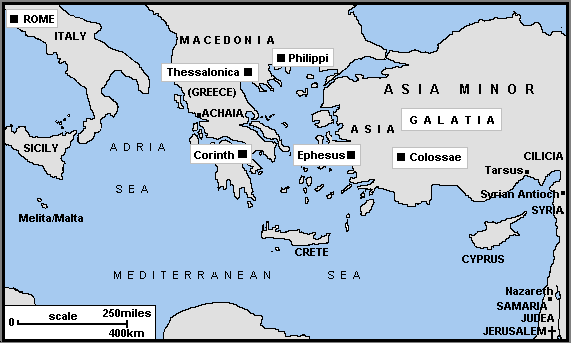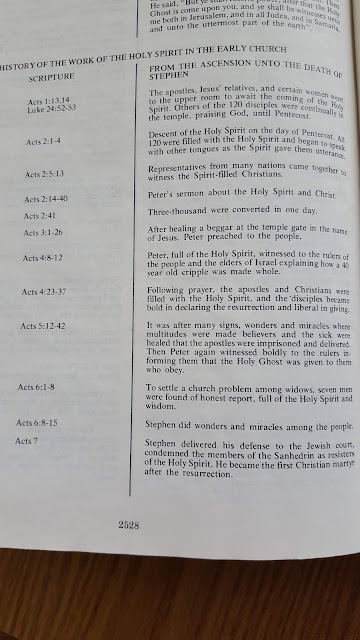Acts 11:2030 Other believers from Cyprus and Cyrene (in modern-day Libya) also arrive in Antioch and preach to the Greek-speaking Gentiles living there (see 2 on Map 20).


Saint Barnabas | |
|---|---|
| Apostle, Bishop of Milan and Apostolic Father | |
 | |
| Church | Early Church |
| Metropolis | Milan and Cyprus |
| See | Milan and Cyprus |
| Successor | St. Anathalon of Milan |
| Personal details | |
| Born | unknown Cyprus |
| Died | Salamis, Cyprus |
| Alma mater | School of Gamaliel |
| Sainthood | |
| Feast day | June 11 |
| Venerated in | |
| Canonized | Pre-Congregation |
| Attributes | Red Martyr, Pilgrim's staff; olive branch; holding the Gospel of Matthew |
| Patronage | Cyprus, Antioch, against hailstorms, invoked as peacemaker |
| Shrines | Monastery of St Barnabas in Famagusta, Cyprus |
Barnabas (/ˈbɑːrnəbəs/; Greek: Βαρνάβας), born Joseph, was according to tradition an early Christian, one of the prominent Christian disciples in Jerusalem. According to Acts 4:36, Barnabas was a Cypriot Jew. Named an apostle in Acts 14:14, he and Paul the Apostle undertook missionary journeys together and defended Gentile converts against the Judaizers. They traveled together making more converts (c. 45–47), and participated in the Council of Jerusalem (c. 50). Barnabas and Paul successfully evangelized among the "God-fearing" Gentiles who attended synagogues in various Hellenized cities of Anatolia.
Barnabas' story appears in the Acts of the Apostles, and Paul mentions him in some of his epistles. Tertullian named him as the author of the Epistle to the Hebrews, but this and other attributions are conjecture. Clement of Alexandria and some scholars have ascribed the Epistle of Barnabas to him, but his authorship is disputed.
Although the date, place, and circumstances of his death are historically unverifiable, Christian tradition holds that Barnabas was martyred at Salamis, Cyprus. He is traditionally identified as the founder of the Cypriot Orthodox Church. The feast day of Barnabas is celebrated on June 11.
Barnabas is usually identified as the cousin of Mark the Evangelist on the basis of the term "anepsios" used in Colossians 4, which carries the connotation of "cousin." Some traditions hold that Aristobulus of Britannia, one of the Seventy Disciples, was the brother of Barnabas.
Acts 11:24 describes Barnabas as "a good man, and full of the Holy Spirit and of faith".
Barnabas and Timothy
Philippians 2
19 Now I hope in the Lord Jesus to send Timothy to you soon so that I also may be encouraged when I hear news about you. 20 For I have no one else like-minded who will genuinely care about your interests; 21 all seek their own interests, not those of Jesus Christ. 22 But you know his proven character, because he has served with me in the gospel ministry like a son with a father. 23 Therefore, I hope to send him as soon as I see how things go with me. 24 I am convinced in the Lord that I myself will also come quickly.

Tarsus — Birth Place of Saul/Paul | HolyLandPhotos' Blog







